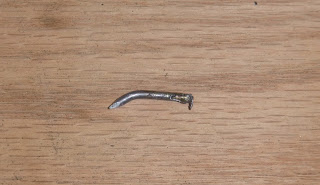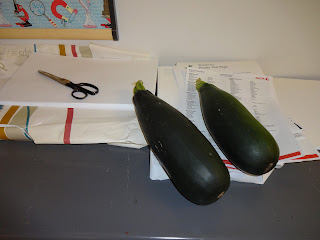I turned on the TV as I was getting ready for work on Tuesday and heard a theme song I instantly recognized. I didn't think I had left the channel on one of the many broadcast rerun channels, so I instantly said, "Wonder who died?"
I probably only watched a couple seasons of
Growing Pains. I was certainly done watching by the time they put the show on life support by bringing in Chrissy (Ashley Johnson) and Luke (Leonardo DiCaprio) as Kirk Cameron and Tracey Gold got too old to be relevant to the show anymore. About the only episode I actually remember is the one where Mike and dad go to a Bruce Springsteen concert and get caught on TV after - resulting in some teasing by Mike's friends; I was quite surprised this was a very early episode in the series.
This started me thinking about all the other people who died in 2016. There seems to be an acceleration in the notable people of some level of celebrity who have played a role in my past who are now dying. Presumably, this will only continue to increase...
David Bowie, January 8: I can't say I was a huge fan; I sort of saw him as this weird, androgynous performer. But I recognized his unique contribution to music. I probably appreciated Ziggy Stardust more later in my life...
Phil Fish, January 26: I probably only watched
Barney Miller in reruns, late at night - and I'm not sure when, since we weren't really allowed to watch that much TV, but I do remember watching Abe Vigoda on the show. Hard to say now if those memories are good or bad, but there they are.
Antonin Scalia, February 12: My Criminal Justice professor in college said that listing the names of the 12 Supreme Court justices would be on the final exam. With the internet in its infancy at that point, I was trying to find current information and it was not terribly easy. My boss at the time called directory assistance, got the number for the Supreme Court in Washington DC and got the information from the person who answered the phone. Seriously! The list wasn't on the final exam - which I shouldn't be surprised about since the professor had some major problems. I'm quite sure he at least had an alcohol problem, if not issues with something much more troublesome. I liked Scalia's matter-of-fact, no apologies style; reportedly when Helen Prejean (
Dead Man Walking) ran into him in an airport and she asked him if he was Antonin Scalia, he responded, "Well, somebody has to be..." The fact that he remained friends with the diametrically opposed Ruth Bader-Ginsburg is something everyone with strong political beliefs should emulate.
Henry Warnimont, February 15:
Punky Brewster was one of several kid-themed Annie-esque TV shows (think
Different Strokes and
Webster). I guess we all at some level wanted fabulously rich pseudo-parents to appear out of nowhere - 'cause this happens all the time. George Gaynes as Punky's "dad" is slightly unmemorable, or maybe I didn't actually (and embarrassingly) watch the show enough to remember it that well.
Harper Lee, February 19:
Too Kill a Mockingbird is a great book, an American classic that is actually worth reading. I've read enough reviews to know I should probably proceed cautiously with
Go Set a Watchman, and it is sad that there was so much controversy surrounding the release of that book. At a minimum, it was updated from its original form to be more in line with modern political philosophy in a way.
@, March 5: He may not be a household name, but Ray Tomlinson "invented" email and pioneered the use of the "@" symbol. One man, one symbol, forever a part of modern technical history.
Nancy Reagan, March 6: "Just Say No!" First Lady, Mrs. Reagan, played her own role in the Ronald Reagan White House. Lots of criticism over astrology or spending of money on household furnishings, but it is without a doubt that President Reagan would not have been who and what he was without her.
Benny, March 17: I'm not sure if Larry Drake's character on
LA Law had a last name, but his portrayal as a functionally slow person was really good.
LA Law had a good run as one of the better of the many 1980's lawyer shows.
Gary Shandling, March 24: Not my favorite comedian, but I did watch
The Gary Shandling Show quite a bit. I don't recall finding it particularly enjoyable, but his awkward comedic style was done in a such a non-television way that the show was actually quite revolutionary.
Eugene Gatling, March 28: The premise of
Benson wasn't very strong, but James Noble's character as governor allowed Robert Guillaume to have the self-named show. Despite the show, the story lines were often surprisingly funny.
Merle Haggard, April 6: I'm sort of neutral on country music, but broadly speaking, there is a sliding scale from the music's origins to the music now. Merle lived country music in a way that Garth Brooks is a best a very weak copy of (and his new beard is really, really awful). When we lose Chris Kristofferson, who is about the same age, it will be a very sad day indeed.
Mildred Krebs, April 17:
Remington Steele was a great show, and paved the way for other flirtatious detective shows (i.e.
Moonlighting). Doris Roberts was a great part of
Remington Steele, even if a little over-the-top. Not as much over-the-top as
Everybody Loves Raymond, which was not loved by everyone (and even got a little bit dark for a sitcom).
Prince, April 21: Probably the death that bugged me the most. Like David Bowie, I really wasn't a big fan in the 1980s, and also like Bowie, I saw Prince as this weird, androgynous singer. I may or may not have ever seen the movie
Purple Rain, but I listened to the music from it a lot. "Is the water warm enough?" He definitely had a very unique role in popular music that will continue to influence for some time.
Morely Safer, May 19:
60 Minutes is no longer the show that it once was. Now more pop-political than anything else and while I like Scott Pelley as CBS News anchor, I think this has weakened both the CBS News and
60 Minutes. Morely Safer's interview with Salvador Dali has to be one of the best people interviews ever, and the Homer Simpson/
The Shining/60 Minutes blurb from TreeHouse of Horrors V is a great brief tribute.
Mohamed Ali, June 3: An arrogant man if there ever was one, yet oddly humble at the same time. His place in American culture goes beyond boxing. Somewhere I have a book of jokes - oddly 1980's jokes that are ethnic without being racial - one of which references him. "How can I preach against violence when I just plunked down $200 to watch Ali and Frazier pummel each other for a few hours?"
Mr. Lebowski, August 2: David Huddleston was the other Mr. Lebowski from
The Big Lebowski - yet another cult Cohen Brother's movie. "I'm just going to go find a cash machine..."
The Waco Kid, August 29:
Blazing Saddles could not be made today - and both Gene Wilder and Cleavon Little (1992) made that movie what it still is today. I also sort of remember watching
Young Frankenstein after it was accidentally grabbed at a VHS video rental store instead of
Young Einstein.
Einstein may have been more topical at the time, but in retrospect,
Frankenstein was probably the better choice.
See No Evil, Hear No Evil with Richard Pryor (2005) would have been the better topical choice...
Janet Reno, November 7: Quite glad the Clinton (Bill) Administration has ended and no fan of Janet Reno as Attorney General. But she played a major role in politics during a formative time in college. I guess I'll probably remember her Dance Party from
Saturday Night Live as much as anything else, and her willingness to play along after she left office. Hopefully she got a chance to see much of the country in her red pickup truck too.
Gwen Ifill, November 14: I wasn't a fan of the
News Hour and I saw her as unnecessarily partisan, but she was also very smart. She seemed so very young, cancer is a bitch...
Mrs. Brady, November 24: The mom nobody had, which was probably a good thing. Why a stay-at-home mom needed a live-in house keeper still baffles me.
The Brady Bunch was seemingly always on in the afternoon, so I watched a lot of it in reruns at friend's houses. It is nearly unwatchable now - and it may have been then as well. Perhaps Florence Henderson's demise seems somehow tied to the slow, painful death of Crisco.
Fidel Castro, November 25: Revolutionary, Dictator, Celebrity Ruler, Tyrant, the list goes on. Those of us who grew up in the Reagan era still miss the cold war. In a world where Russia could no longer be the bad guy, Cubans were still able to play that role in the movie
Red Dawn.
John Glenn, December 8: An American hero, but I just didn't like the guy. I wrote him a letter when he was our Senator (also when I was less realistically cynical about politics) and the letter I got in return was quite condescending. I still have it somewhere, although I'm not sure where it is. In retrospect, the return letter was almost certainly written by some flunky staffer and not something he ever even saw.
Which brings us to Jason Seaver, December 13: Dad from the formerly mentioned
Growing Pains, Alan Thicke - a show when sitcoms still allowed the dad's to more than just the buffoon of every joke.
It is transitionally sad to see all these deaths of "notables" from 2016. Still, the year isn't over yet!
And it makes me start to think ... how many people who were actually important in my life, but who I've lost touch with over the years are continuing to pass? Maybe that is the real lesson from a list of celebrity deaths.
Belated Edit: The death of the very influential Princess Leia occurred after this was published. Starpuff hairdo, "Into the garbage chute, Flyboy" and "It's not funny anymore James" (Big Bang Theory cameo). 'nuff said...





















